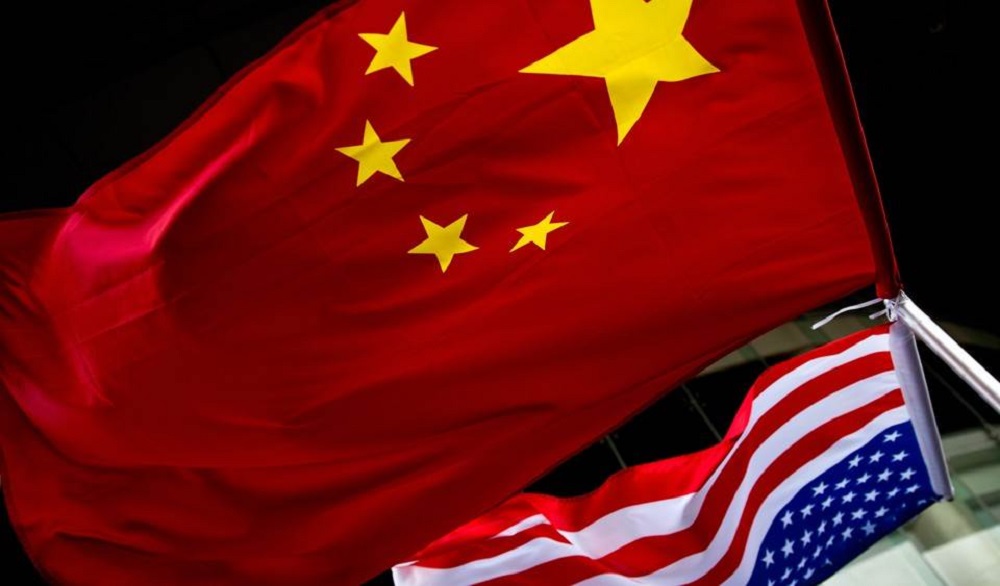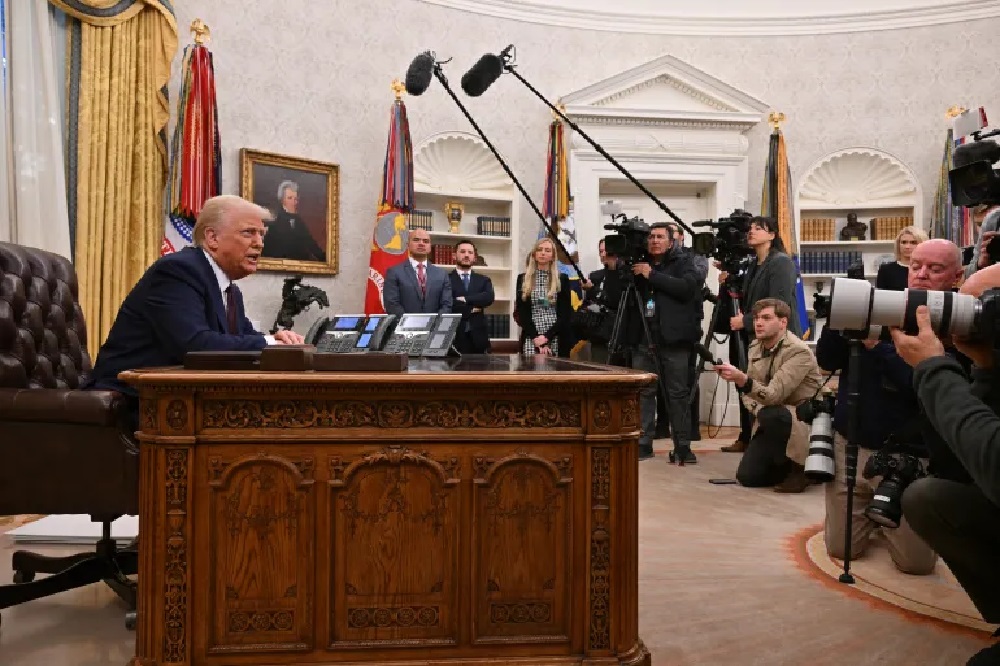Trump Imposes New Tariffs on Canada, Mexico, and China, Escalating Trade Tensions
The U.S. enacts significant tariffs on key trading partners, citing concerns over fentanyl and immigration, prompting swift international responses.

Watan-On Saturday, U.S. President Donald Trump signed executive orders imposing tariffs on imports from Canada, Mexico, and China, while also threatening to levy duties on European Union imports. According to a White House official, the United States has enacted a 25% tariff on all imports from Canada and a 10% tariff specifically targeting Canadian energy products. The administration stated that the reduced rate on Canadian energy imports aims to mitigate potential cost increases. Additionally, a 25% tariff has been imposed on all imports from Mexico, and a 10% tariff has been applied to all imports from China, supplementing existing duties.
President Trump justifies these actions by accusing the three nations of contributing to the fentanyl crisis—a potent opioid causing significant issues in the United States. He asserts that China exports key components of the drug to Mexico, enabling Mexican drug cartels to manufacture fentanyl, which is subsequently sold in the U.S. Furthermore, Trump criticizes Mexico and Canada for insufficiently controlling illegal immigration flows.
In response, Mexico announced it will impose retaliatory tariffs on the United States. Mexican President Claudia Sheinbaum firmly rejected the White House’s allegations of government alliances with criminal organizations and declared the implementation of customs measures against Washington. Canadian Prime Minister Justin Trudeau condemned the U.S. tariffs as violations of the trade agreement negotiated years prior and announced a 25% tariff on American goods. He emphasized that Canada and Mexico are collaborating to counteract the U.S. tariffs imposed on both countries.

China’s Ministry of Commerce announced plans to challenge the U.S. tariffs through the World Trade Organization, stating that the U.S. actions “seriously violate” WTO rules and urging the United States to engage in open dialogue and enhance cooperation. The ministry warned that trade wars have no winners and vowed to implement countermeasures.
Analysts warn that these developments could escalate trade tensions between the United States and its key partners, potentially leading to retaliatory actions from the affected nations. The economic implications are significant, with concerns about increased costs for American consumers and disruptions to global supply chains. Experts caution that the tariffs could exacerbate inflation, posing risks to economic stability and potentially leading to further political fallout.
President Trump has also indicated the possibility of imposing tariffs on the European Union, criticizing the EU’s trade practices and suggesting that tariffs may be applied to European goods. Such actions could have substantial economic and trade repercussions, including escalating the trade war, slowing economic growth, affecting key industries like automotive and technology, straining U.S.-EU relations, and prompting European companies to strengthen ties with other global partners.

Overall, these measures are expected to cause significant disruptions in the global economy, with potential for increased costs for consumers, strained international relations, and challenges to existing trade agreements.






